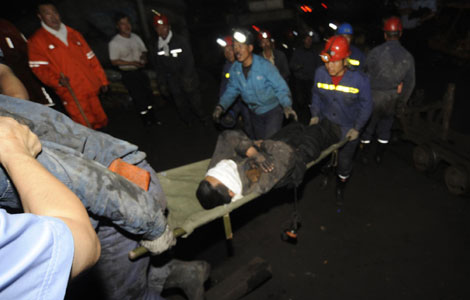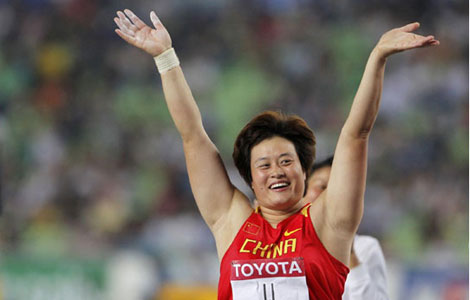China holds its own in sci-tech
Updated: 2011-08-29 08:02
By Cheng Yingqi (China Daily)
|
|||||||||||
BEIJING - China is playing its part in international cooperation on major scientific research projects, a senior official has said.
Wan Gang, minister of science and technology, made the comment at the Ninth National Conference on International Science and Technology Cooperation in Beijing on Sunday.
The conference is held every five years to review progress and to draw up plans for international cooperation on science and technology (S&T).
"As China's S&T strength grew in recent years, the trend is that the country is contributing as much as other countries to international cooperation," Wan said.
"In the past, Chinese researchers used to participate in research projects either instigated by foreign cooperators or sponsored by foreign investment.
"But now more substantial cooperation is conducted on independent projects and on others funded on a 50-50 basis, which ensures an equal share of any advantages gained during the research."
In the past five years, Chinese scientists took part in a number of international research projects, such as the Integrated Ocean Drilling Program, the Gene Expression Omnibus and the International Thermonuclear Experimental Reactor.
According to statistics released by the ministry, more than 900 scientists from the Chinese Academy of Sciences are currently involved with international research organizations, and more than 200 of them are in leading positions.
Also, measured by the Science Citation Index (which is owned by Thomson Reuters), the number of China's international research papers surged to 28,000 in 2009, 21.2 percent more than in the previous year.
"Moving into the new century, problems such as climate change and disease control need cross-boundary cooperation, and S&T plays a supporting role in this," said Chinese State Councilor Liu Yandong.
"As a result, international cooperation on science and technology is facing an important opportunity in that it should help to accelerate the transformation of economic development in China."
According to Jin Xiaoming, director of the ministry's department of international cooperation, China had built science cooperation relationships with 152 nations and regions by 2010, and had signed 104 government-level cooperation agreements.
Moreover, government funds for cooperation in China rose from 100 million yuan ($15.54 million) a year in 2006 to 1 billion yuan this year.
"The past five years have seen a good number of S&T cooperation projects that improved our scientific development in crucial areas, but we still have to admit that the internationalization of our scientific research has lagged behind that of our economy," Jin said.
China, the second-largest economy in the world, only contributes 6 percent to S&T achievements worldwide.
"That means 94 percent of research projects are completed outside China," Jin said. "If we can share the resources properly with other countries, we can save the costs of funding, resources and labor by at least 20 percent."
Hot Topics
Anti-Gay, Giant Panda, Subway, High Speed Train, Coal Mine, High Temperature, Rainstorm, Sino-US, Oil Spill, Zhu Min
Editor's Picks

|

|

|

|

|

|







